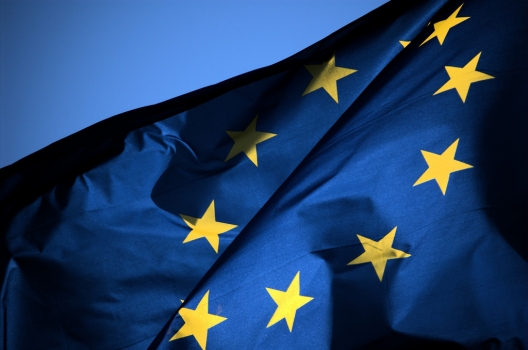 The European Union (EU), on March 27, issued a report critical of Egypt’s progress in enacting suggested reforms in 2013. The report, which makes recommendations for the future, also describes 2013 as a “challenging year, during which no particular progress can be reported,” in regards to earlier recommendations.
The European Union (EU), on March 27, issued a report critical of Egypt’s progress in enacting suggested reforms in 2013. The report, which makes recommendations for the future, also describes 2013 as a “challenging year, during which no particular progress can be reported,” in regards to earlier recommendations. ![]() Download the report as a PDF
Download the report as a PDF
Specific recommendations made by the EU include ensuring the implementation of the constitution’s articles guaranteeing rights and freedoms, creating conditions in which NGOs can freely work, ensuring the protection of women’s rights, addressing the situation in Sinai, halting the use of military courts for civilians, and organizing free and fair parliamentary and presidential elections.
Below is the text of the report:
The 2014 annual “Neighborhood Package” consists of a joint Communication (“Neighborhood at the Crossroads”) and a set of country specific and regional reports. The report on Egypt underlines on key/main developments and reform efforts in 2013 and makes recommendations for the future.
2013 has been politically a very challenging year during which no particular progress can be reported in relation to the Action Plan currently in place. A deeply divisive political crisis culminated by the end of June in massive demonstrations against the government throughout the country. Following an ultimatum set by the armed forces, Mohamed Morsi was ousted from the Presidential office on 3 July 2013. The EU undertook extensive outreach activities. HR/VP Catherine Ashton visited Egypt several times, engaging closely with all political parties in order to contribute to overcoming the political mistrust and polarization that have characterized the political scene in Egypt and seeking an inclusive solution.
Following the revision of the constitution undertaken by the Egyptian interim authorities, a referendum was held on January 14-15 (2014), and led to an overwhelming approval of the draft constitution. However, the voters’ turnout was relatively low and there was little room left to the opposition in the electoral campaign.
Due to the political developments, Egypt did not address key recommendations contained in last year’s ENP progress report, with the exception of the signature of the regional Convention on pan-Euro-Mediterranean preferential rules of origin. Past recommendations remain thus largely pertinent. Consequently, on the basis of this year’s report and to sustain implementation of the ENP Action Plan still in place, Egypt is invited to:
- ensure that the new Constitution is implemented in full respect for human rights and fundamental freedoms. National legislation should be compliant with the Constitution and with international standards;
- create conditions conducive to an active and independent civil society and adopt legislation on non-governmental organizations (NGOs) and amend the law regulating assembly in line with international standards;
- ensure the protection of women’s rights and gender equality;
- ensure that regulations on the right of asylum are in line with the Constitution and international standards on migration and refugees’ rights; effectively cooperate with UNHCR/IOM, including by giving them full access to detention facilities;
- address firmly the serious situation in the Sinai by closing down torture camps and by dismantling the criminal networks operating on the trafficking/smuggling routes within and towards the Sinai;
- organize genuine democratic presidential and parliamentary elections, in line with international standards;
- completely halt the use of military courts to judge civilians;
- ensure that investigations on the many cases of violence, including sexual abuse, are carried out and that the perpetrators are promptly brought to justice;
- ensure macroeconomic stability and strengthen public finance management in line with international standards and put in place necessary economic reforms;
- ensure and implement social safety net systems to protect the most vulnerable from the impact of reductions in commodities subsidies;
- ratify the regional Convention on pan-Euro-Mediterranean preferential rules of origin.
Reforms initiated, carried out, or delayed during 2013 in the different areas of cooperation between the EU and Egypt are described in the annual country report. Some of the issues reported deserve special attention.
The military held considerable sway over key political decisions in Egypt. The new constitution envisages a high level of autonomy for the military, as it would grant a final say over the position of Minister of Defiance to the Supreme Council of Armed Forces.
Freedom of assembly and press freedom deteriorated. TV channels were closed and many journalists harassed, including foreigners. The relationship between the Egyptian authorities and civil society deteriorated markedly during 2013, affecting especially human rights NGOs. The NGO trial, several arrests and disproportionate sentencing of human right activists and the new law on demonstrations were among the cases demonstrating a willingness to reduce the voices of independent civil society organizations.
Concerning asylum issues, according to the UN High Commissioner on Refugees (UNHCR) 129,031 Syrian nationals were registered in Egypt as of 7 December 2013. It is estimated that there are over 300,000 Syrians in the country. Human trafficking in Sinai remained a matter of concern. Migrants and refugees, primarily from Eritrea and Sudan, were being held for ransom. Some of them were subjected to torture by human traffickers and other criminals.
In the area of trade, only limited progress in the Agreement on Conformity Assessment and Acceptance of industrial products (ACAA) could be registered. In June 2012 the EU and Egypt launched a dialogue on the Deep and Comprehensive Free Trade Area but Egypt showed only little interest in the matter.
Image: Photo: Giampaolo Squarcina
